6. Miami Vice – Michael Mann
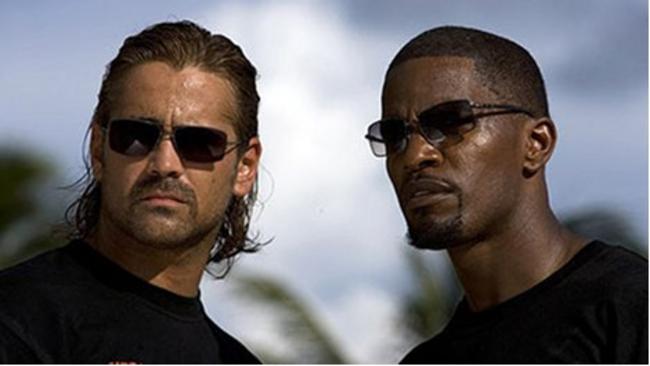
This is the hardest one to write.
Growing up with directors like this in the 90’s and early 2000’s is a privilege. It also gives you more of an awareness when things have gone so far downhill. That is very much the case now with Michael Mann, and it all started with a film that seemed tailor-made for him.
Miami Vice was the coolest show on television in the 1980’s, with a pinch of seediness and aesthetically pleasing shots at every corner. It was hard to watch movies from Mann like Heat and Collateral and not think he would have an interesting take on this franchise, especially with Jamie Foxx and Colin Farrell being the buddy-cops.
Instead, the aesthetics were about the only thing Mann got right. Foxx and Farrell didn’t mesh well together, and it stripped Mann of what he always seemed to have: Someone to care for amid all the shooting. There was no heart to the film, and not much of a story to build it with. A grittier take was just fine, but it never captured audiences beyond a few well-shot gun battles.
The film didn’t come close to sniffing box office success. Those who did see it quickly discarded it, whether for its stylistic changes or for the character and story shortcomings. Either way, it became the sudden fall of Mann.
He’s only directed a lukewarm Public Enemies and the scrambled Blackhat since. Neither made much money. Neither got Mann anywhere close to accolades either, despite having the likes of Christian Bale, Johnny Depp, Chris Hemsworth, and Viola Davis on-set.
It’s difficult to see the guy who brought us The Last of the Mohicans, Heat, and The Insider fall to such lows. And there’s doubt to where it all started.
7. Pinocchio – Roberto Benigni
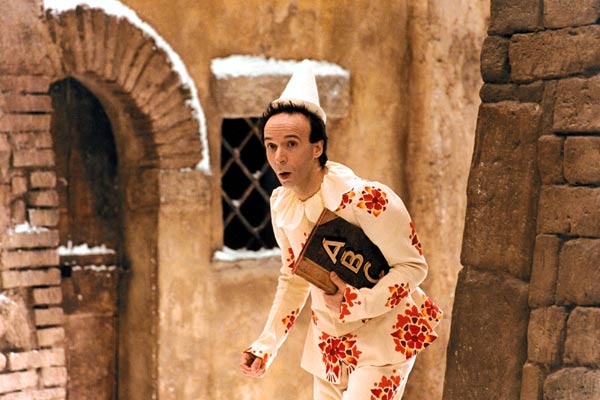
Why anyone ever thought a grown man playing a “real boy” was a good idea is beyond me. But coming from a creative mind like Roberto Benigni, Pinocchio seems even more strange.
The director was one of the more intriguing foreign figures in cinema during the 1990’s. He’d already spent two decades as an actor, becoming an Italian treasure before making noise as a director. It was hard to imagine him doing much of anything wrong. And that seemed to be solidified with his 1997 fan-favorite, Life is Beautiful.
It was this heartwarming film that garnered an 8.6 score by audiences on IMDb, good enough for 26th all-time. Three Oscars came its way, including for Benigni as Best Actor. He seemed untouchable, having directed a string of films without a single hiccup.
But then he made the odd choice of playing Pinocchio and doing so as a near-fifty-year-old man. And for as creepy as that scenario may seem, Benigni made it twice as bizarre. Not only did the film lack the same energy that sparked Life is Beautiful, but was instead replaced by whatever type of annoying, humorless shtick Benigni was trying to use.
It was such a disturbingly bad display of comedy that it joined the rare ranks of “0%” films on Rotten Tomatoes. For those who followed the actor-director’s career, this must have seemed like a terrible joke itself. And distributor Miramax, who did nothing to help this film with an even worse US cut, was handed a heavy loss.
The ludicrous vanity project all but crushed the directing and acting careers of Benigni. He’s had three smaller films over the course of the last 16 years, but he’ll never be fully forgiven for how he ruined a beloved children’s story.
8. Waterworld – Kevin Costner
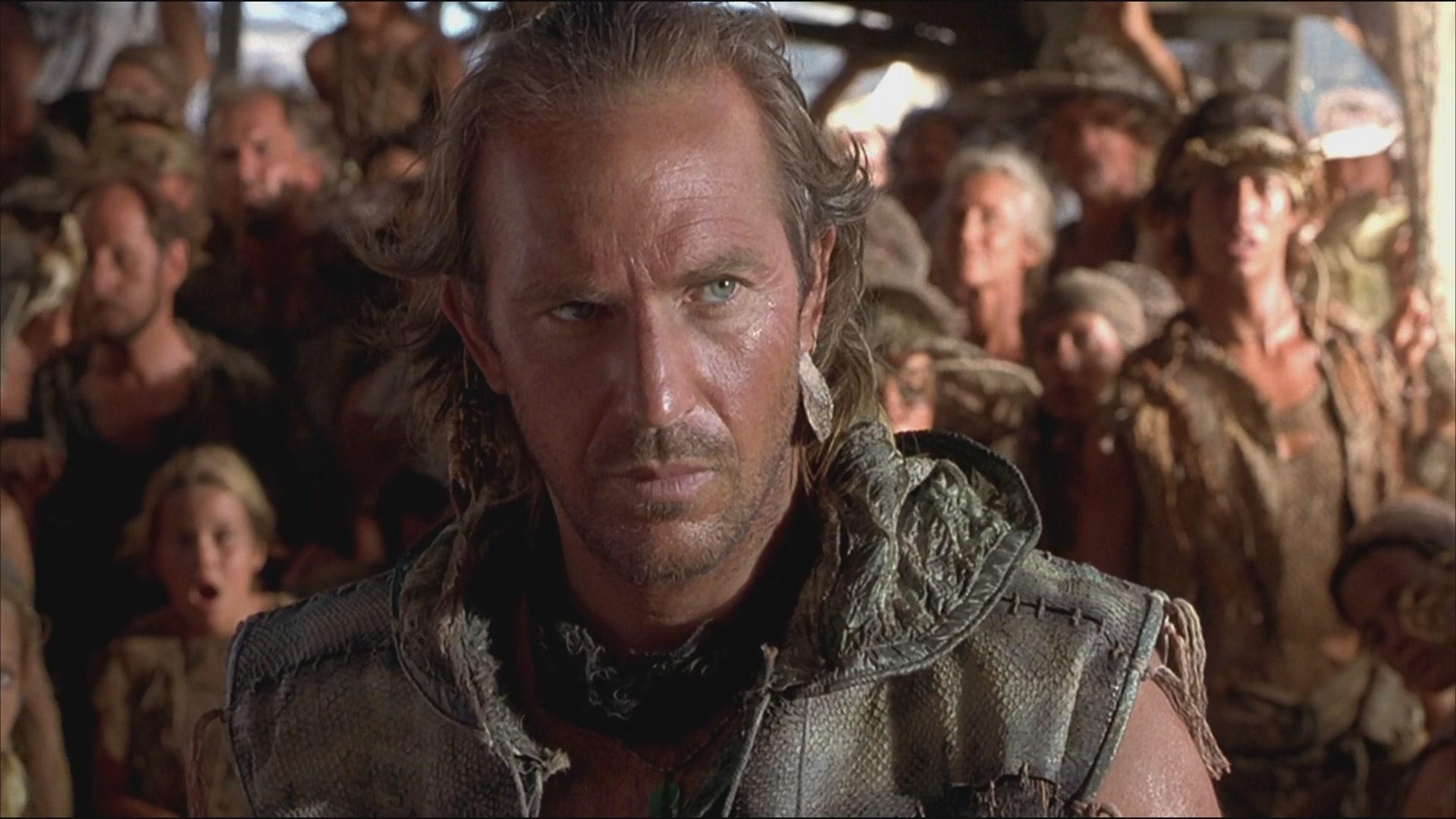
Kevin Costner had everything going for him.
The late 80’s brought him lead roles in memorable films such as The Untouchables, Bull Durham, and Field of Dreams. And it only got better when he decided to direct.
Dances with Wolves isn’t necessarily considered the quintessential Best Picture winner by any stretch of the imagination. Many thought it was overlong and didn’t hit deep enough on the cultural issues it presented. But nonetheless, it won seven Oscars, including Best Director. And were talking about this guy’s debut direction.
But then he tried to outdo himself with an even bigger epic, the post-apocalyptic Waterworld. He was originally only on as a producer and lead actor. The movie started with a $65M budget and Robin Hood: Prince of Thieves director Kevin Reynolds at the helm. It would be the fourth time the two worked together.
But what seemed like a good fit quickly spiraled into what will go down as one of the biggest production disasters of all time.
Sets were destroyed by a hurricane, Costner was nearly killed while filming, and Reynolds quit in post-production. The actor himself took over as director. But he had already been running the show, and that’s why he usually gets the blame for how the film turned out.
Waterworld’s production bloated to $172M. It was $235M when considering marketing and distribution. That may sound like a hefty budget for an original film these days, but this was 1995 were talking about. If you’re keeping score at home, that’s nearly $390M after inflation.
A total of 36 writers worked on the script, a director quit, and the original composer was even given the boot. But in the end, all the weight fell on Costner.
Whether you think Waterworld is underappreciated or not, it certainly cost him the power he’d received for Wolves. Then he went and did The Postman, which only made things much, much worse.
9. Showgirls – Paul Verhoeven
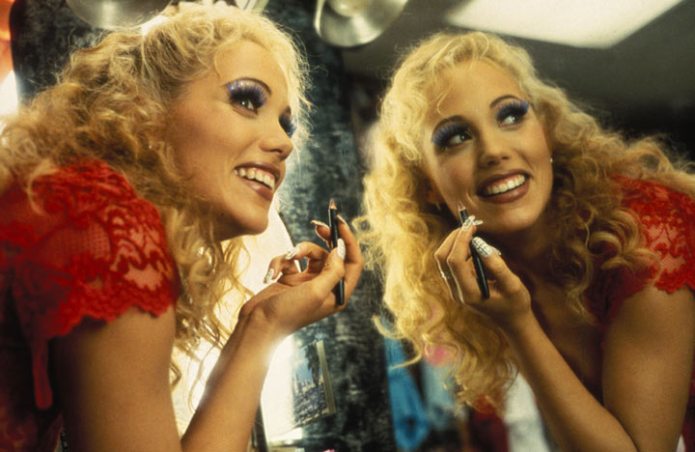
Paul Verhoeven is still very close to the heart of film fans. The act of defying cinematic norms and creating satirical pieces of art has always earned him our respect and then some.
But no matter how much people want to play around with the notion that Showgirls is a cult classic, making hilariously bad movies doesn’t do much for someone’s career. At least not if studios are committing something more than B-movie money.
Verhoeven is an outlaw among filmmakers and has still seen box office success from films like Basic Instinct ($353M on a $49M budget) and RoboCop ($53M on a $13M budget). But coming off the former’s cashflow, Showgirls was supposed to be Verhoeven’s next unconventional film to rack in a major payday.
But then the film was slapped with an NC-17 rating and trashed by critics, which bled over into the numbers. While the film would eventually earn that cult status and make enough money to warrant its existence, United Artists wasn’t a very happy distributor at the time.
No matter if Verhoeven is a misunderstood genius who intended everything he made, it still killed most of the momentum he had from a pair of sci-fi classics (RoboCop and Total Recall) and a box office phenomenon (Basic Instinct). And when he tried to go back to science fiction, given the $100M Starship Troopers, he once again failed to connect with a broad audience.
By then, Hollywood was turning away from him, but out of his own frustration, he turned away first.
Since then, he’s had respectable outings with films like Black Book and Elle. They’re low-budget films that still show off his incredible wit.
So, maybe Verhoeven’s career—at least in the form of Hollywood productions—was ruined with Showgirls. But he probably doesn’t care much anyway.
10. Attack of the Clones – George Lucas
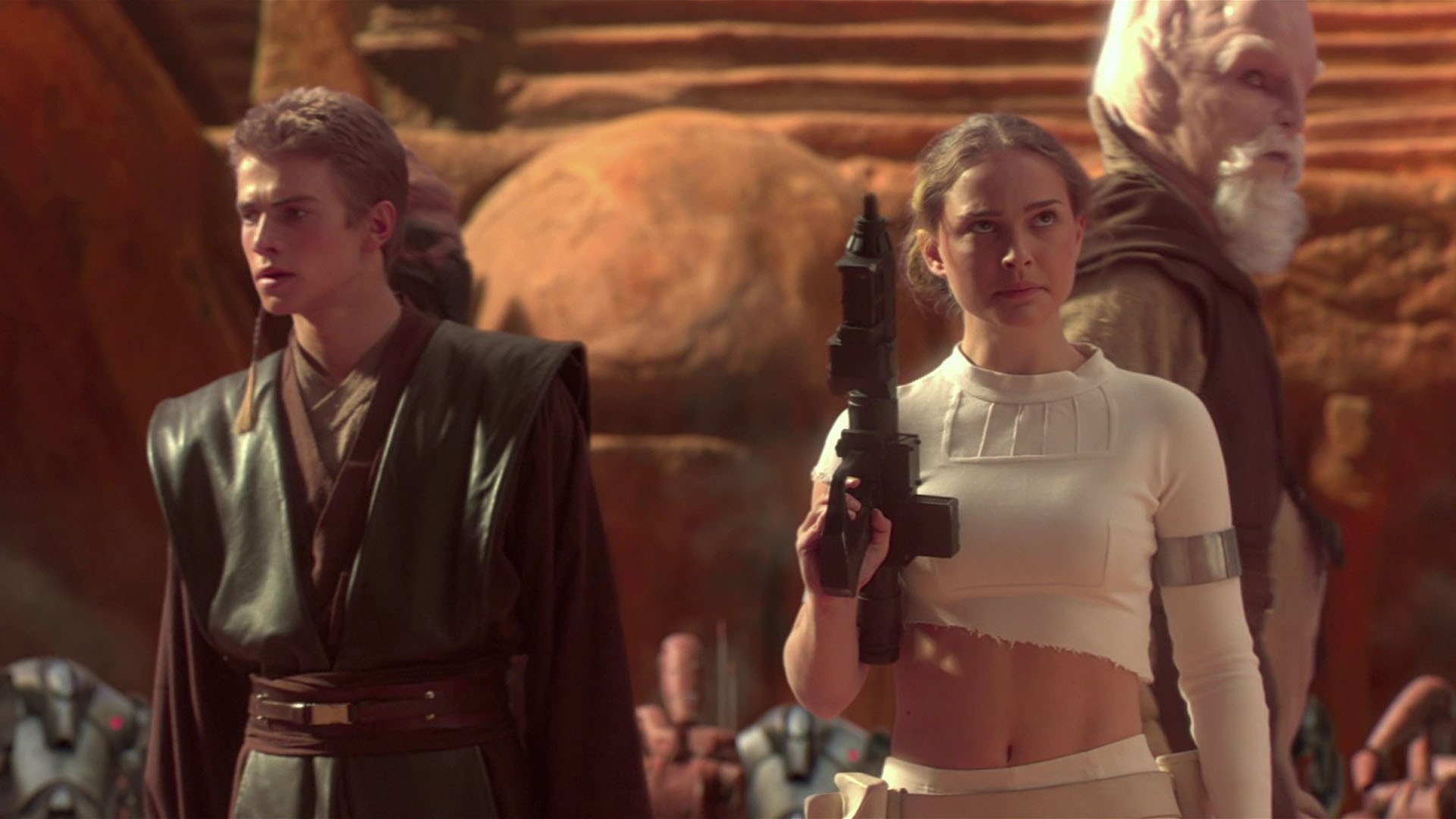
Yes, The Phantom Menace is the movie that changed the way we see George Lucas. But Attack of the Clones is what buried his directing career for good.
In fact, if there’s any argument that rivals Clones, it’s that the original Star Wars itself ruined Lucas’s career. Besides the health issues he developed while filming the movie, it also delivered an incredible amount of hype no other film franchise had ever seen. Hype no one could live up to. And people tend to forget how little Lucas had to do with the successes of Empire Strikes Back and Return of the Jedi.
Even A New Hope itself had several voices holding Lucas in check. He had many outrageous ideas for the film that had to be disposed of.
But with such a beast as Star Wars was, of course people were going to hype the founder’s new creation. But while The Phantom Menace was certainly a shot to his ego and career, he could’ve righted the ship.
But he was given too much control. Some of those crazy ideas started to seep through. He didn’t have a Lawrence Kasdan writing for him. He just had a lot of Yes-men. And even though he minimized Jar Jar Binks’s role, and still had the arcs of Anakin Skywalker, Obi-Wan Kenobi, and Chancellor Palpatine to flesh out, he dug a deeper hole he could never get out of.
He didn’t have a child actor to deal with, but Hayden Christensen wasn’t a much better choice as Anakin. Although, none of the actors could help having to speak a cringe-worthy dialogue. Some of the lines are legendary for how awful they are (example: Anakin’s “sand” line).
Sure, it’s easy to prequel-bash. It’s practically an American pastime at this point. But Revenge of the Sith was a definite step up from the first two films of the trilogy. Unfortunately, after Clones, it was too late to right the ship. And the director who made American Graffiti and THX-1138 is now out of the game altogether.